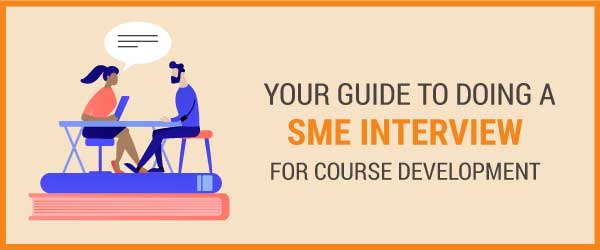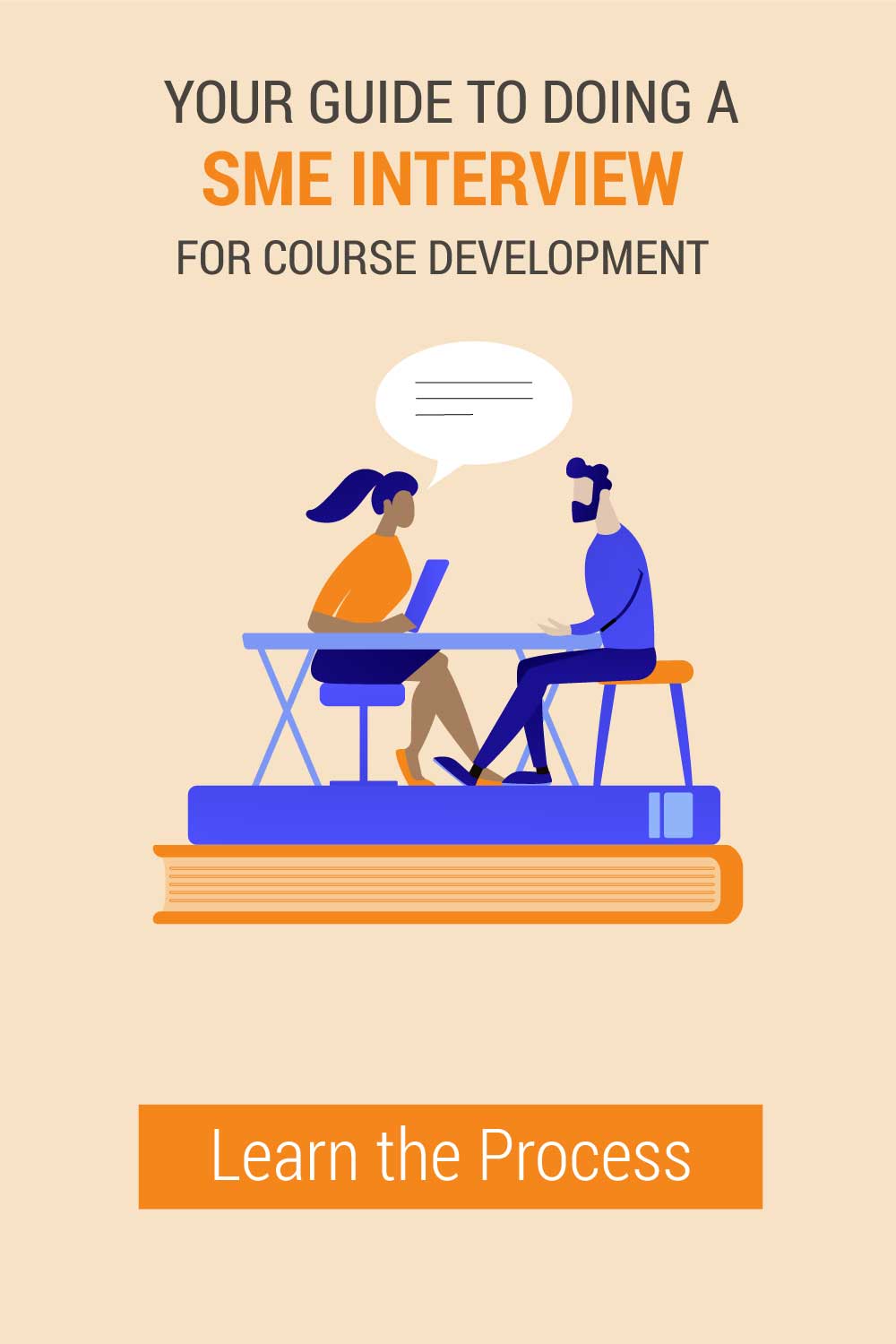
Short of performing a science fiction mind-meld, how can you efficiently transfer content from the brain of a subject matter expert (SME) into a form you can use? In case you’re new at this, instructional designers often work with SMEs, who are specialists in their field. When we conduct a SME interview, our goal is to understand the skills and knowledge they’ve gained in order to assist others in becoming competent.
Working with SMEs provides the content and insights you need to develop a course. The SME will also review design documents, scripts, media assets and test questions for accuracy. Leveraging the knowledge of SMEs is one reason that instructional designers are content neutral. One of the early activities in the course development process often involves interviewing one or more SMEs. Be sure to listen or download the transcript from this podcast episode: Pro Tips for Working with SMEs.
The Brain of a SME
Working with a SME is a unique experience. By definition, this individual is an expert and most likely, you are a novice. (See The Expert’s Brain for more on expert-novice differences.) Not only are you dependent on the SME for basic knowledge, the two of you may have conflicting ideas on how a learning experience should be designed and what it should include.
In order to get your working relationship off to a good start, you’ll need to plan and prepare for your first SME interview. You can organize your initial interview with the subject matter expert into three phases: Preparation, Interview and Follow-up. Below are guidelines for each phase. Feel free to add your personal guidelines in the Comments section below.
Phase 1: Preparing for the Subject Matter Expert Interview
Regardless of how busy you may be, prepare for the subject matter expert interview. Your questions will be more intelligent and you’ll be better able to drill down if you are a little knowledgeable about the content.
Preparation Guidelines
- When possible, know the performance gap you are trying to close. This will help to keep the conversation on track.
- Request documentation and resources prior to the interview. Then review these or do research on your own to get some background knowledge prior to the meeting.
- Prepare interview questions ahead of time.
- Request permission to record the interview. Although you’ll be taking notes like a fanatic, the recorded version will be greatly appreciated when you don’t understand your notes.
- Bring a supply of paper and pencils so your SME can diagram processes, procedures and structures. You can also sketch to visually explain your ideas or understanding to the SME.
- Establish what the meeting will accomplish, how it will be run and the types of questions you will ask. Explain this to your expert ahead of time, giving them time to prepare if needed.
- If the SME will be involved in design approval, consider showing examples of learning experiences and ways to support performance to help the SME understand why extraneous information may be an obstacle to learning.
Phase 2: Conducting SME Interviews
When working with subject matter experts, your collaboration can range from an interview or two to partnering on the design and development of an entire course or curriculum.
SME Interview Guidelines
- Be sure the SME knows that you are appreciative of their time and busy schedule.
- Remember to record interviews for later reference if you have permission.
- You may want to remind the SME that you know very little about their domain of expertise.
- Narrow the focus of the interview to the specific skills and tasks targeted for training. It’s difficult for experts to minimize information—they know so much. You may have to politely ask, “Does a person really need to know that in order to perform the task?”
- You may want to read and use the Five Moments of Need model to avoid getting a brain dump.
- Ask questions that allow you to drill down to the level of content you need.
- Take notes and at appropriate points, repeat back what you heard in a summary form. You may wish to create an Interview Collection Form to stay on track.
- Encourage your expert to draw diagrams and mind maps whenever it will help you better understand the content.
- Ask what types of visuals will be most effective for explaining abstract concepts.
- Use your best listening skills.
- Establish a procedure for contacting your SME with questions and for how you will submit deliverables and get sign-off, if this is part of the plan.
- Follow-up meetings and interviews with summary emails for approval.
Phase 3: Follow-up
If your head is not exploding by the end of your initial interviews, it will be surprising. You will most likely feel a compulsion to get everything organized immediately, before the delicate puzzle pieces fall out of place. Follow that instinct.
Guidelines for SME Follow-up
- Review your notes and clean them up so the information is clear.
- Organize them into a form that will still make sense to you in a few weeks or months.
- Listen to the recording to catch important details you missed in your notes.
- Indicate where there are gaps in the information. You might be able to fill these in yourself if you have reference sources or access to others who are competent. Or place these in your question list for the SME (see below).
- Through the design and development process, collect all of your SME questions in one place. Then email or set up a call when you’ve accumulated a good number of them. This minimizes the number of times you disturb your SME.
Resources:
- Wikipedia’s Subject-matter Expert for some general background.
- Content Focusing Questions for SME Interviews for keeping things on track.
- Pro Tips for Working with SMEs
- Methods for Capturing SME Knowledge


Thanks for this great article!